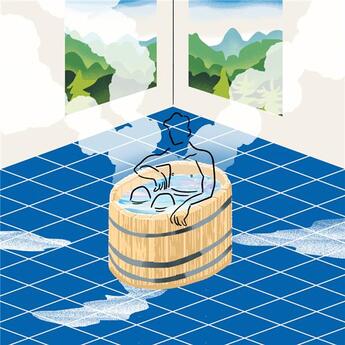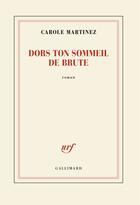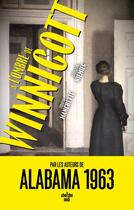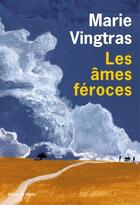-
Date de parution : 18/04/2023
-
Editeur :
Dap Artbook
-
EAN : 9781885030726
-
Série :
(-)
-
Support :
Papier
Résumé:
Gravestones hatch political critiques and tomatoes resist being eaten in the wildly surreal and funny stories of Genpei Akasagawa, a giant of the Japanese avant-garde There is a small but potent club of authors--Miranda July and Patti Smith are both members--who were renowned artists long before... Voir plus
Gravestones hatch political critiques and tomatoes resist being eaten in the wildly surreal and funny stories of Genpei Akasagawa, a giant of the Japanese avant-garde There is a small but potent club of authors--Miranda July and Patti Smith are both members--who were renowned artists long before they became writers. Genpei Akasagawa was already a giant of the Japanese contemporary art world when he began writing these stories, which earned him Japan's two most prestigious book awards.
In these stories, ostensibly quiet tales of a single dad in 1970s Tokyo, a doorknob practices radical politics, a peeled tomato smarts in pain, raw oysters tick like time bombs and gravestones provide a critique of capitalism. After reading I Guess All We Have Is Freedom, you will never be able to look at a sliding door, a rubber band or a plastic gutter the same way again. In spite of their suburban settings, the stories here are more radical than the most cosmopolitan contemporary art. Or as the protagonist puts it: "The whole art thing is a little played out at this point. Nowadays, it's all about buying gutters. Going out to buy a gutter on a sunny day." Genpei Akasegawa (1937-2014) was a rare phenomenon, an artist who successfully transitioned from the avant-garde to the larger realm of popular culture. Akasegawa emerged on the Japanese art scene around 1960, starting in the radical Anti-Art movement and becoming a member of the seminal artist collectives Neo Dada and Hi Red Center. The epic piece Model 1,000-Yen Note Incident (1963-74), which involved a real-life police investigation and trial, cemented his place as an inspired conceptualist. Hyperart: Thomasson (Kaya Press, 2010), a collection of musings on art that the city itself makes, marks a crucial turning point in his metamorphosis from subculture to pop-culture status. Also an accomplished author writing under the penname Katsuhiko Otsuji, in 1981 he won Japan's most prestigious literary award, the Akutagawa Prize, for his story "Dad's Gone," translated into English here for the first time in this volume.
Donner votre avis














